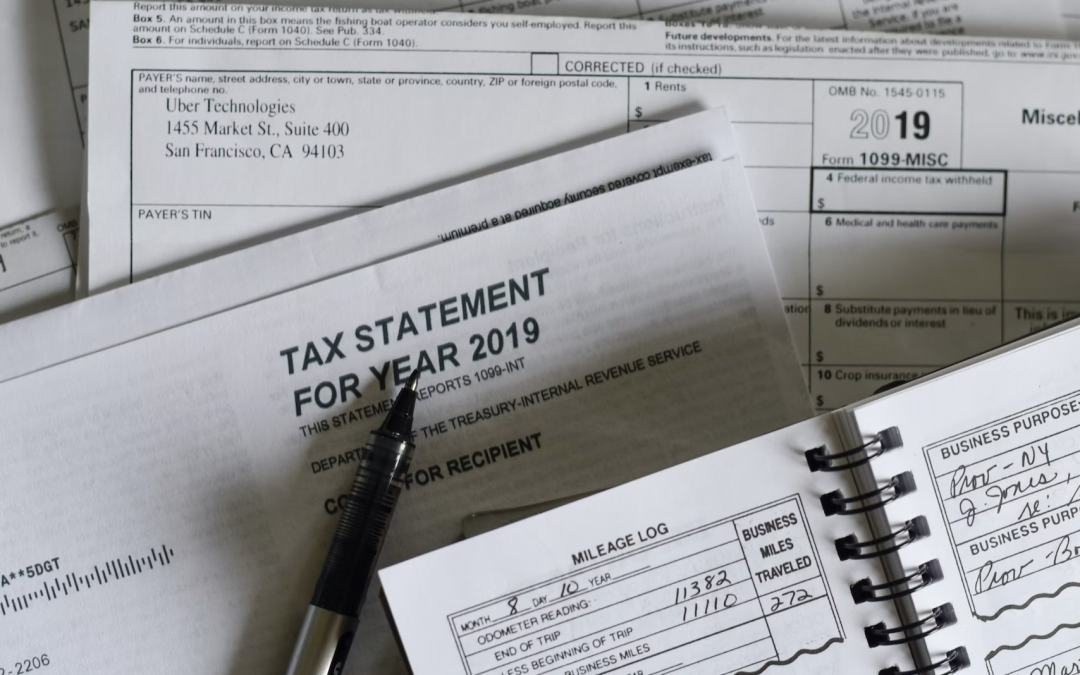
by Andrea Carson | Sep 20, 2023 | Entrepreneurship, Finances, Taxes
As an entrepreneur, managing your business expenses is a critical component of maintaining a healthy financial foundation. Keeping a close watch on your expenses not only ensures that you stay within budget but also provides valuable insights into your business’s financial health and growth potential. In this blog, we’ll delve into effective strategies and tools to help you stay on top of your business expenses, streamline your financial processes, and set the stage for success.
1. **Create a Dedicated Business Account**
Separating your personal and business finances is essential. Open a dedicated business bank account to ensure that all your business transactions are centralized and easy to track. This separation simplifies record-keeping and prevents confusion when categorizing expenses, making it easier to prepare accurate financial statements come tax time.
2. **Digital Expense Tracking Tools**
Embrace technology by using digital expense tracking tools tailored for entrepreneurs. Apps like QuickBooks, FreshBooks, and Expensify offer user-friendly interfaces that help you record expenses, categorize them, and generate detailed reports. These tools can automate data entry, reducing the likelihood of manual errors and saving you time.
3. **Organize Receipts Digitally**
Say goodbye to the hassle of paper receipts piling up in your workspace. Utilize apps like Evernote, Shoeboxed, or Adobe Scan to capture and store digital copies of your receipts. This practice not only saves physical space but also makes it easier to search for and retrieve receipts when needed.
4. **Set Up Expense Categories**
Establish a clear and detailed system of expense categories that align with your business’s activities. Categories might include marketing, office supplies, travel, utilities, and more. Assign each expense to the appropriate category as soon as it’s incurred to streamline the tracking process and gain a comprehensive view of where your money is going.
5. **Regularly Reconcile Accounts**
Frequently reconcile your business accounts to ensure that your recorded expenses match your bank statements. This practice helps identify any discrepancies or errors early on, preventing financial confusion down the line. Reconciliation also aids in spotting potential fraudulent activities and maintaining the accuracy of your financial records.
6. **Implement a Receipt Approval Process**
If you have employees or contractors making business-related purchases, establish a receipt approval process. Require them to provide receipts and detailed explanations of their expenses before reimbursement. This not only encourages responsible spending but also adds an extra layer of accountability.
7. **Schedule Regular Expense Reviews**
Set aside time on a weekly or monthly basis to review your business expenses. Analyze spending patterns, identify areas of overspending, and make informed decisions about where to cut back or allocate more funds. Regular expense reviews also allow you to gauge the effectiveness of your budgeting strategies.
8. **Plan for Taxes**
Don’t wait until tax season to organize your expenses. Throughout the year, keep track of deductible expenses, such as office supplies, travel expenses, and professional services. This proactive approach makes tax preparation less overwhelming and maximizes your potential deductions.
Maintaining a clear record of your business expenses is a fundamental practice that contributes to the success of your entrepreneurial journey. By establishing organized processes, leveraging digital tools, and staying vigilant about tracking your spending, you’ll gain a deep understanding of your business’s financial landscape. This knowledge empowers you to make informed decisions, optimize your budget, and ultimately pave the way for sustainable growth and profitability. Remember, the effort you invest in tracking your business expenses today will pay off in the form of financial clarity and a solid foundation for the future.

by Andrea Carson | Aug 23, 2023 | Entrepreneurship, Finances, Taxes
Keeping Good Financial Records for Your Small Business: A Comprehensive Guide
Maintaining accurate and organized financial records is crucial for the success and growth of any small business. Good financial records not only help you track income and expenses but also enable you to make informed decisions, prepare for taxes, and demonstrate financial health to potential investors or lenders. In this comprehensive guide, we’ll outline essential steps to keep good financial records for your small business.
1. Separate Business and Personal Finances
The first and most critical step is to separate your business and personal finances completely. Open a dedicated business bank account and use it exclusively for business transactions. This separation ensures that your financial records remain clear and reduces the risk of commingling funds, which could lead to tax and accounting complications.
2. Choose the Right Accounting System
Selecting the right accounting system is vital for efficient financial record-keeping. Consider using accounting software like QuickBooks, Xero, or Wave, which offers user-friendly interfaces and various features to track income, expenses, invoices, and financial reports. An appropriate accounting system will streamline your record-keeping process and provide valuable insights into your business’s financial performance.
3. Maintain Organized Receipts and Invoices
Keep a record of all receipts and invoices related to business transactions. Organize them by date and category, such as office supplies, travel expenses, or equipment purchases. Digitize paper receipts whenever possible and store them securely in the cloud or on a dedicated server to prevent loss.
4. Track Income and Expenses Regularly
Consistency is key in maintaining good financial records. Set a schedule to record income and expenses regularly, whether it’s weekly, bi-weekly, or monthly. Use your chosen accounting software to input transactions promptly, and reconcile bank statements to ensure accuracy.
5. Create and Manage a Chart of Accounts
A chart of accounts is a list of categories used to classify income, expenses, assets, and liabilities. Organize your chart of accounts to match your business’s specific needs and structure. This system will help you categorize and track financial transactions more effectively.
6. Monitor Cash Flow
Understanding your business’s cash flow is critical to making informed financial decisions. Monitor incoming and outgoing cash regularly to identify potential cash flow gaps and take proactive measures to address them. Positive cash flow is essential for the sustainability and growth of your small business.
7. Reconcile Bank Accounts and Statements
Regularly reconcile your business bank accounts with your accounting records to ensure accuracy and identify any discrepancies. This process helps catch errors, duplicate transactions, or missing entries that may affect your financial statements.
8. Prepare Financial Statements
Generate essential financial statements regularly, including income statements, balance sheets, and cash flow statements. These statements provide a snapshot of your business’s financial health and aid in identifying trends and areas that require attention.
9. Keep Track of Tax Obligations
Stay organized with your tax obligations to avoid potential penalties or missed deadlines. Maintain records of payroll taxes, sales taxes, and other applicable taxes. Prepare and file tax returns accurately and on time.
10. Back Up Your Financial Records
Regularly back up your financial records to protect against data loss due to hardware failure, theft, or cyber-attacks. Store backups securely and consider using cloud-based solutions for added protection.
11. Seek Professional Assistance
If financial record-keeping becomes overwhelming, consider seeking professional assistance from an accountant or bookkeeper. An experienced professional can help set up your financial records, guide you on best practices, and provide valuable insights into your business’s financial performance.
Conclusion
Maintaining good financial records is an essential part of running a successful small business. By following these steps and implementing effective financial record-keeping practices, you can gain valuable insights into your business’s financial health, make informed decisions, and position your small business for growth and success. Regularly review your financial records, stay organized, and seek professional help when needed to ensure your financial records are accurate, reliable, and serve as a solid foundation for your business’s financial success.


